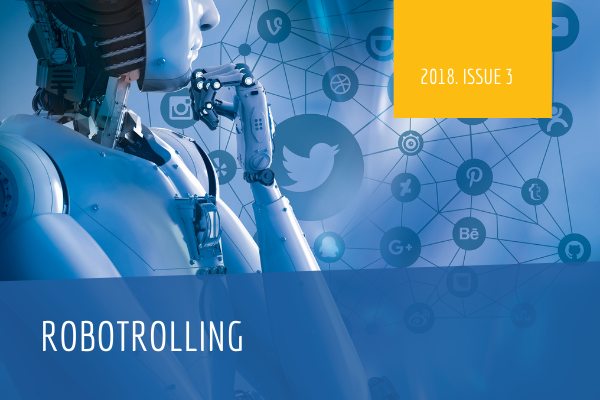Robotrolling is a quarterly publication that analyses automated inauthentic activity on social media.
This quarter, the disputed presidential election result and nationwide protests in Belarus were the main targets of inauthentic Russian-language accounts, resulting in a cluster of spikes in fake activity in August. Pro-Lukashenka users concocted an external threat from NATO by pushing false claims of NATO buildup along the Belarusian border and shared rumours of impending intervention. Automated users asserted that NATO posed an internal threat in Belarus as well, alleging that the demonstrations are “puppeteered” by the West.
The situation in Belarus coincided with the most pronounced uptick in attention from identifiably human Russian-language accounts. Compared to the previous report, the portion of messages attributed to identifiable humans increased from 14% to 18% on Twitter and from 26% to nearly 30% on VK. This increase in legitimate engagement in NATO-related discussions of Belarus drove down the percentage of bot users to the lowest figure we have observed, 15% on Russian Twitter and 19% on VK.
English-language activity focused on Polish affairs, both independently and in relation to the ongoing protests in Belarus. Inauthentic English-language discussions peaked with announcements of US troop relocation from Germany to Poland. In September, former US vice president Joe Biden made critical comments about Hungary and Poland, triggering the highest volume of automated retweets from English-language bots this quarter.
Finally, in this instalment of Robotrolling we take a look at the supply side of fake social media accounts. The second iteration of the COE’s social media manipulation experiment tracks variation between the responses of Facebook, Twitter, YouTube, Instagram and TikTok to inauthentic engagement. Strikingly, the report found that Instagram is 10x cheaper to manipulate than Facebook, TikTok has virtually no self-regulatory defences, and it remains easy to manipulate US senators’ accounts, even during an election period.






